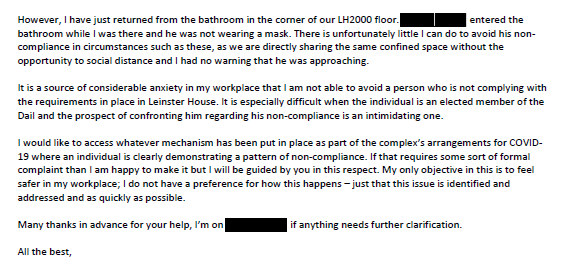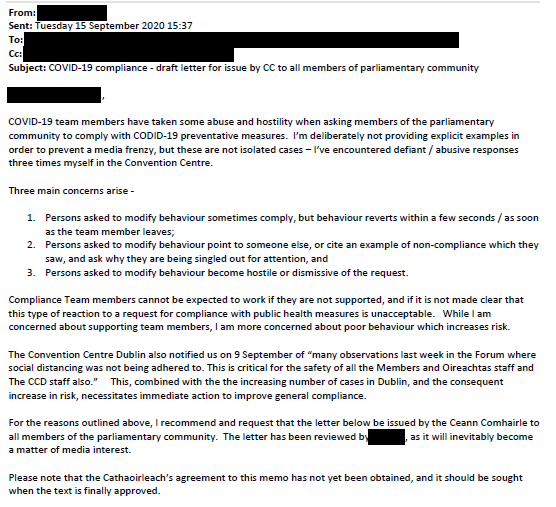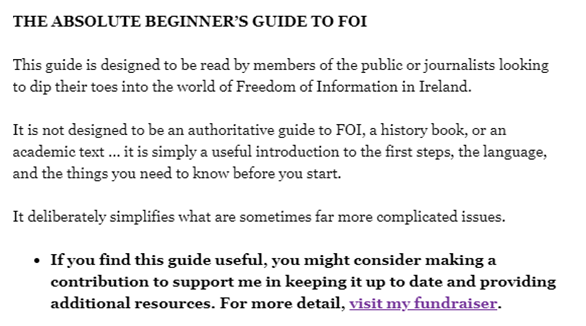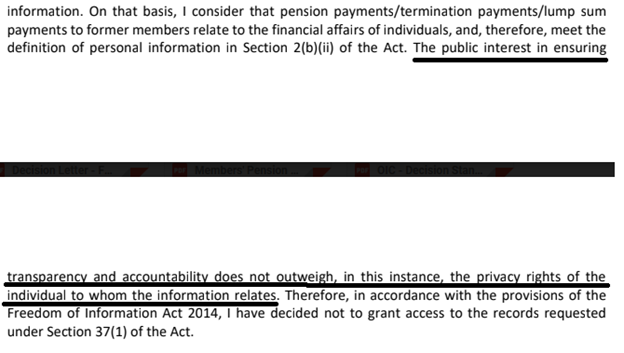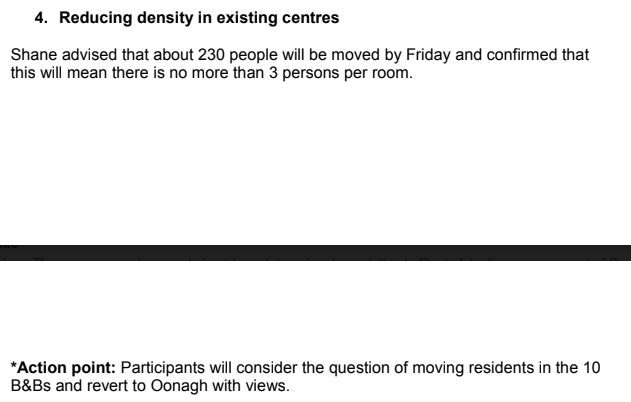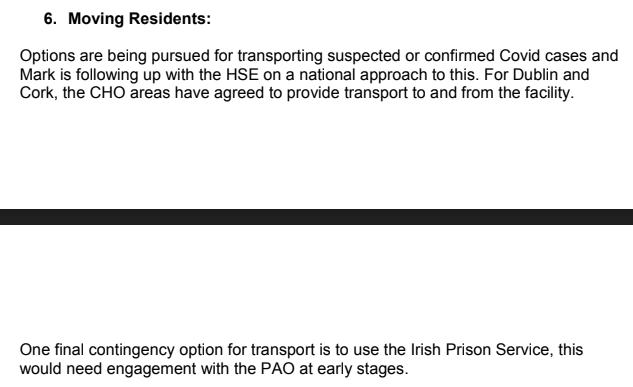
The actual history of FOI reform in Ireland tells us to be really cautious about what will happen once the review begins.
Back in 2002, govt were worried about five-year exemption for Cabinet records because their own decisions would become FOIable.
documentcloud.org/documents/2107…
Back in 2002, govt were worried about five-year exemption for Cabinet records because their own decisions would become FOIable.
documentcloud.org/documents/2107…

A high-level group of the most senior civil servants in the country were given the ball ... and they ran away with it.
It was their work that began discussion over vexatious requests, "trawling", and fees to help shut FOI down. It's all in black and white in the records:
It was their work that began discussion over vexatious requests, "trawling", and fees to help shut FOI down. It's all in black and white in the records:

The hand-written note in this one says: "This is key. There will be criticism of this."
Again, this is the work of the civil service, not Cabinet.
Again, this is the work of the civil service, not Cabinet.

Let's move forward to the introduction of the 2014 Act. Labour are in government having promised to restore the FOI Act to what it was.
Labour ministers & their advisers (ask if you want) are under intense pressure from civil service not to remove up-front fees for requests.
Labour ministers & their advisers (ask if you want) are under intense pressure from civil service not to remove up-front fees for requests.
In fact, not only do civil service want fees the retained, they actually want to make it even more expensive.
Myself and @gavinsblog had begun doing what were termed multi-faceted requests where if we submitted an FOI request, we might ask for two or three different things.
Myself and @gavinsblog had begun doing what were termed multi-faceted requests where if we submitted an FOI request, we might ask for two or three different things.
The civil service did not like this at all & wanted these requests shut down as well.
A pretty lonely campaign was led by the indefatigable @gavinsblog. At the very last minute, Minister Howlin decided to remove the up-front fees and deliver the promise for restoration of FOI.
A pretty lonely campaign was led by the indefatigable @gavinsblog. At the very last minute, Minister Howlin decided to remove the up-front fees and deliver the promise for restoration of FOI.
So, long story short, we have two significant periods of FOI reform in Ireland.
Both of them are hijacked by the civil service with a primary motivation of a/ making citizens pay for information and b/ reducing the number of requests they receive.
Both of them are hijacked by the civil service with a primary motivation of a/ making citizens pay for information and b/ reducing the number of requests they receive.
Let's move forward again to 2020. @RightToKnowIE hears rumblings that a review of the FOI Act is being considered.
We submit a couple of requests, one of which will tells us that the civil service are currently planning an exercise to measure the "cost of FOI".
We submit a couple of requests, one of which will tells us that the civil service are currently planning an exercise to measure the "cost of FOI".

Late last year and early this year, we keep hearing the same thing. Eventually, I heard it so much that I just asked @CathMurphyTD to submit a parliamentary question on it.
This was the response on 29 April. The system is robust, functioning well. No plans for a review.
This was the response on 29 April. The system is robust, functioning well. No plans for a review.

Remarkably, within 2 months the minister has changed his mind. The FOI Act now needs review.
At the event to announce it, one speaker from the Dept of Health asks if they should have been allowed to cease dealing with FOI during the pandemic:
gov.ie/en/press-relea…
At the event to announce it, one speaker from the Dept of Health asks if they should have been allowed to cease dealing with FOI during the pandemic:
gov.ie/en/press-relea…
Things go a little quiet. We do find out that the 'cost of FOI' project is firmly back on the agenda.
Then 'Zapponegate' happens and information access gets thrown into the spotlight because a minister admits he routinely deletes FOI records from his phone.
Then 'Zapponegate' happens and information access gets thrown into the spotlight because a minister admits he routinely deletes FOI records from his phone.
That's a short history of what ACTUALLY happens during periods of FOI reform in Ireland, based on ACTUAL records & direct personal experience.
Anyway, I read this morning there's nothing to worry about, and it's hardly the case that fees could be back on the agenda.
Anyway, I read this morning there's nothing to worry about, and it's hardly the case that fees could be back on the agenda.
But one thing is for sure, we're not going to sit back and just hope for the best.
Maybe @IRLDeptPER and @mmcgrathtd can categorically promise that upfront fees will not be reintroduced, and that the five hour (€100) cap on search and retrieval will be untouched.
Maybe @IRLDeptPER and @mmcgrathtd can categorically promise that upfront fees will not be reintroduced, and that the five hour (€100) cap on search and retrieval will be untouched.
That would be a really positive step at reassuring requesters that this review is being done in good faith.
If you want to see some more ideas on positive steps for FOI reform, visit:
documentcloud.org/documents/2106…
If you want to see some more ideas on positive steps for FOI reform, visit:
documentcloud.org/documents/2106…
If you'd like to see some of the thousands of pages of records we publish based on our requests using FOI and Access to Information on the Environment (AIE), visit thestory.ie
To support our work, find out more at patreon.com/right2know
To support our work, find out more at patreon.com/right2know
• • •
Missing some Tweet in this thread? You can try to
force a refresh



